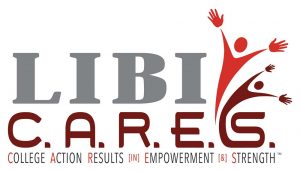LIBI Cares
The action that results in empowerment and strength, encompasses planning events, activities, and future endeavors, which are part and parcel to what is key at LIBI, “WE”:

- We Care
- We Strive
- We Discover
- We Build
- We Support
- We Grow
- We Lead
- We Motivate
- We Have Talent
We CARE when donating to, advocating for, and playing an active role in the walks to fight diabetes and autism, and to promote suicide prevention and strides against breast cancer. We STRIVE as educators to ensure that our students embark on careers after graduation that reflect the skills they have acquired at LIBI. It reveals how well we’ve done our jobs to prepare our students to move ahead, whether they decide to work or continue their education.
When we help our students to realize their goals, it is important that they DISCOVER certain things for themselves. Through Job Fairs and Transfer Fairs, sponsored by the Career Services Department, and on educational trips where students explore for themselves what lies ahead, we help them better understand what they will encounter once they graduate. This also helps to BUILD character, not only through hard work in the classroom, but also through community and hands-on involvement, such as by working in the student store or becoming IRS-certified to prepare taxes through the VITA program.
We SUPPORT our students by providing well-trained members of the college community who are experts in their fields. We further support, strengthen, and guide our students through special events like I Commit to Complete, and by welcoming visiting professionals who visit classrooms to talk with our students. We all GROW, (and we’re not only referring to our students – we mean everyone!) as students advance to the next level in pursuit of their educational goals, becoming accepted to the many senior colleges with which LIBI has articulation agreements. Our faculty members are elevated through professional development and faculty convocation workshops, where they are given the opportunity to meet famous authors like James M. Lang. LIBI continues to be at the forefront by providing our students and the entire college community with important information assuring them that “you’re not alone” on issues like domestic violence, dating violence, FERPA, Title IX and the dangers of drug and alcohol abuse. We LEAD the way in working with organizations like the Family Justice Center, New York Asian Women’s Center, the Foundation for A Drug-Free World, and other organizations.
At LIBI, we work diligently to set up innovative events to MOTIVATE students and to make learning fun. “All work and no play makes Jack a dull boy” is taken seriously when we boost college spirits through class trips, purely for fun, along with helping everyone in the college community, especially our students, to realize that WE HAVE TALENT at LIBI’s annual art show.
Career Pathway Program:
The action that results in empowerment and strength also encompasses Adult Education Courses under the Career Pathway Program. These required courses for adult learners vary from a range of important topics for their professional and personal growth. These topics include but are not limited to:
- Financial Literacy
- Health Literacy
- Fundamental Mathematics
- Computer Basics
As of December 16, 2014, students who did not receive a high school diploma (or its recognized equivalent), or who did not complete a secondary school education in a home-school setting, became eligible for Title IV financial aid through a combination of ATB alternatives and enrollment in eligible career pathway programs. To qualify, students without a high school diploma or its equivalent must pass an approved Ability-to-Benefit test. At LIBI this test is the ACCUPLACER. In addition, students must enroll in an approved career pathway program consisting of a post-secondary career program eligible for federal student aid as well as a contextualized adult education component. Courses and activities offered through LIBI’s adult education units provide contextualized learning that supports students in both secondary and post-secondary credential attainment.
